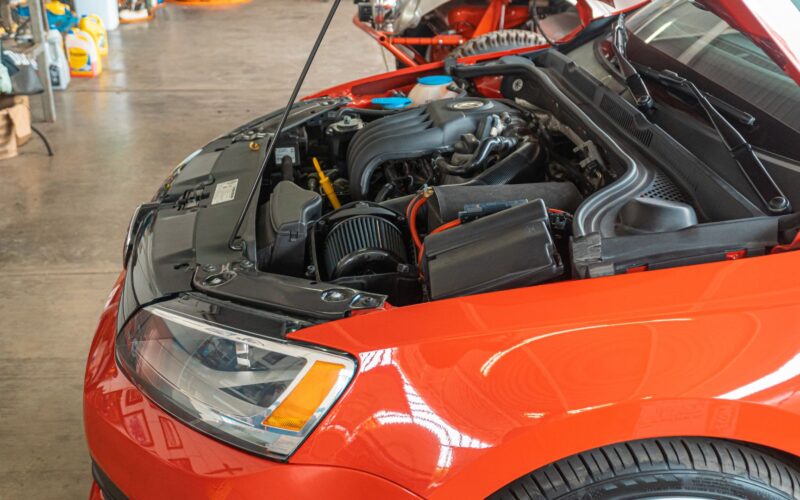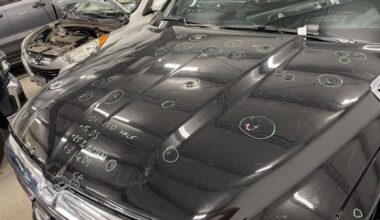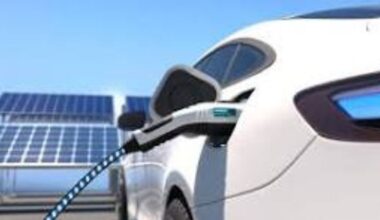Driving is a seamless experience when your car responds smoothly to your commands. However, when your vehicle starts jerking during acceleration, it not only disrupts the driving experience but also raises concerns about potential mechanical issues.
Understanding the multitude of factors contributing to this problem is paramount to diagnosing and resolving it effectively.
In this comprehensive exploration, we will look deeper into the 13 common causes of car jerking when accelerating and provide detailed solutions to address each issue.
Car Jerking When Accelerating With Solutions
1. Dirty Fuel Injectors
Fuel injectors play a critical role in the engine’s operation by delivering the precise amount of fuel into the combustion chamber. However, over time, these injectors can accumulate deposits from impurities present in the fuel, as well as carbon buildup from combustion residues.
These deposits can gradually restrict the injector’s nozzle, disrupting the fuel flow and adversely affecting engine performance.
When fuel injectors become clogged, they may fail to deliver fuel efficiently, leading to uneven fuel distribution among the cylinders. This imbalance can result in misfires and hesitation, particularly noticeable during acceleration. The jerking sensation experienced by the driver is a direct consequence of this irregular fuel delivery.
To address this issue: proactive maintenance is key. Regular use of fuel injector cleaner additives can help dissolve and remove accumulated deposits, restoring optimal injector performance. Additionally, professional cleaning services, such as ultrasonic cleaning, can thoroughly clean the injectors to eliminate stubborn buildup and ensure consistent fuel delivery.
2. Clogged Air Filters:
Air filters are vital components that prevent airborne contaminants, such as dust, pollen, and debris, from entering the engine’s intake system. However, as the air filter captures these particles, it gradually becomes clogged and obstructs airflow to the engine. When airflow is restricted, the engine receives insufficient oxygen, leading to an imbalance in the air-fuel mixture.
The reduced airflow caused by a clogged air filter can disrupt the combustion process, resulting in poor engine performance and noticeable jerking sensations during acceleration. The engine struggles to maintain the necessary power output, leading to hesitation and uneven acceleration.
To mitigate this issue, it’s essential to adhere to the manufacturer’s recommended intervals for air filter replacement. Regularly replacing the air filter ensures consistent airflow to the engine, maintaining the proper air-fuel ratio and preventing jerking during acceleration.
3. Faulty Spark Plugs:
Spark plugs are integral to the ignition system, as they ignite the air-fuel mixture in the combustion chamber, initiating the combustion process. Over time, spark plugs can degrade due to normal wear and tear, as well as exposure to high temperatures and combustion byproducts. Worn-out or faulty spark plugs may fail to produce a strong spark, resulting in incomplete combustion.
Incomplete combustion leads to misfires, where the air-fuel mixture fails to ignite or ignites inconsistently. These misfires cause the engine to run rough, with noticeable jerking or hesitation during acceleration. Additionally, worn spark plugs can contribute to reduced fuel efficiency and increased emissions.
Solution: Regular inspection and timely replacement of spark plugs are essential maintenance tasks to ensure optimal engine performance. Following the manufacturer’s guidelines for spark plug replacement intervals helps prevent misfires and associated jerking issues, promoting smooth acceleration and overall engine efficiency.
4. Failing Ignition Coils:
Ignition coils play a crucial role in the ignition process by converting the low-voltage electrical current from the battery into the high-voltage spark needed to ignite the air-fuel mixture in the combustion chamber. When ignition coils malfunction, they may fail to generate a consistent spark, leading to misfires and engine hesitation.
A failing ignition coil can cause irregular sparks, resulting in incomplete combustion and engine misfires, especially during acceleration. The engine may exhibit symptoms such as rough idling, hesitation, and jerking, indicating ignition coil issues.
Solution: Professional inspection and replacement of faulty ignition coils are necessary to rectify this issue and restore smooth engine operation. Ignition coils should be tested using diagnostic tools to identify any abnormalities in spark output. Prompt replacement of failing ignition coils helps maintain reliable ignition performance and eliminates jerking during acceleration.
5. Dirty Throttle Body:
The throttle body serves as the gateway for airflow into the engine, playing a pivotal role in regulating engine speed and performance. However, over time, the throttle body can become contaminated with dirt, oil residue, and carbon deposits, hindering airflow and disrupting engine operation.
Accumulation of debris in the throttle body restricts the airflow, leading to hesitation and jerking during acceleration. This obstruction prevents the engine from receiving the necessary air supply, causing it to struggle and exhibit irregular performance.
Solutions: To remedy this issue, thorough cleaning of the throttle body is essential. Using appropriate cleaning agents and techniques, the throttle body can be effectively cleansed of deposits, restoring unimpeded airflow and ensuring optimal engine performance.
6. Vacuum Leaks:
Vacuum leaks in the engine’s intake system pose a significant threat to engine performance and fuel efficiency. These leaks disrupt the delicate balance of the air-fuel mixture ratio, resulting in engine hesitation and jerking during acceleration.
Meticulous inspection of vacuum hoses and connections is imperative to identify any signs of leakage. Addressing these leaks promptly through the repair or replacement of damaged components is crucial to restoring proper engine operation and eliminating jerking issues.
Solution: By restoring the integrity of the intake system and preserving the correct air-fuel mixture, vacuum leaks can be effectively mitigated, ensuring smooth acceleration and consistent engine performance.
7. Malfunctioning Mass Airflow Sensor (MAF):
The Mass Airflow Sensor (MAF) plays a crucial role in measuring the amount of air entering the engine, enabling precise adjustment of fuel delivery.
However, when the MAF sensor malfunctions, it can provide incorrect data to the engine control unit, resulting in fuel delivery issues and jerking during acceleration.
Solution: Regular maintenance, including cleaning or replacement of the MAF sensor as needed, helps ensure accurate airflow measurement and smooth engine performance. By addressing MAF sensor issues promptly, drivers can eliminate jerking problems and restore optimal engine operation.
8. Fuel Pump Problems:
The fuel pump is responsible for delivering fuel from the tank to the engine at the required pressure. A failing fuel pump can compromise fuel delivery, leading to engine hesitation and jerking during acceleration.
Solution: Regular testing of the fuel pump’s pressure and timely replacement if below recommended levels are essential to maintain optimal fuel delivery and prevent jerking issues.
By addressing fuel pump problems promptly, drivers can ensure consistent engine performance and smooth acceleration.
9. Transmission Issues:
Transmission problems such as low fluid levels, worn-out clutches, or faulty solenoids can cause erratic shifting and jerking during acceleration.
Solution: Regular checks of transmission fluid levels and condition, along with professional diagnosis and repair of any underlying transmission issues, help ensure smooth gear transitions and eliminate jerking sensations.
10. Dirty or Failing EGR Valve:
The Exhaust Gas Recirculation (EGR) valve recirculates a portion of exhaust gases back into the intake manifold to reduce emissions and control combustion temperature. A dirty or failing EGR valve can cause rough idling and jerking during acceleration.
Solution: Cleaning or replacing the EGR valve as necessary helps restore proper exhaust gas recirculation and prevents jerking issues. By maintaining the functionality of the EGR valve, drivers can ensure smooth engine operation and eliminate acceleration-related jerking.
11. Faulty Throttle Position Sensor (TPS):
The Throttle Position Sensor (TPS) serves as the eyes and ears of your vehicle’s throttle system, constantly monitoring the position of the throttle valve. It sends vital signals to the engine control unit (ECU), allowing it to adjust fuel delivery accordingly. However, when the TPS malfunctions, it can provide inaccurate throttle position readings, leading to erratic throttle response and noticeable jerking during acceleration.
Solution: To diagnose TPS issues, thorough testing is necessary to confirm its functionality. If found faulty, prompt replacement of the TPS is essential to ensure precise throttle control and eliminate jerking issues. By maintaining accurate throttle position readings, drivers can enjoy smoother acceleration and improved driving experience.
12. Engine Misalignment:
A harmoniously aligned engine is essential for smooth and vibration-free operation. However, engine misalignment, often caused by worn engine mounts or improper installation, can disrupt this harmony, leading to vibrations and jerking sensations when accelerating.
Solution: Regular inspection of engine mounts is crucial to identify signs of wear and deterioration. Timely replacement of worn mounts helps maintain proper engine alignment and eliminates jerking issues associated with engine vibrations. By preserving engine stability, drivers can enjoy a smoother ride and improved driving comfort.
13. Electronic Control Module (ECM) Issues:
The Electronic Control Module (ECM) acts as the brain of your vehicle’s engine, controlling various functions based on input from sensors throughout the vehicle. However, faults or glitches in the ECM can disrupt engine performance, leading to jerking during acceleration.
Solution: Scanning the ECM for error codes is the first step in diagnosing ECM issues. Depending on the severity of the problem, reprogramming or replacing the ECM may be necessary to restore proper engine control and eliminate jerking issues. By addressing ECM issues promptly, drivers can ensure consistent engine performance and smoother acceleration, enhancing overall driving satisfaction.
FAQs
1. Why is my car jerking when I accelerate?
Various factors, including issues with fuel delivery, ignition system problems, transmission issues, or engine mechanical problems can cause car jerking during acceleration.
Common culprits include dirty fuel injectors, clogged air filters, faulty spark plugs, transmission problems, and engine misalignment. Identifying the specific cause requires diagnostic testing and inspection by a qualified mechanic.
2. How can I prevent my car from jerking when accelerating?
Regular vehicle maintenance is key to preventing jerking during acceleration. Ensure that you follow the manufacturer’s recommended maintenance schedule for services such as fuel injector cleaning, air filter replacement, spark plug replacement, and transmission fluid checks.
Additionally, addressing any warning signs promptly, such as unusual noises or vibrations, can help prevent minor issues from escalating into major problems.
3. What should I do if my car is jerking when I accelerate?
If your car is jerking when accelerating, it’s important to address the issue promptly to prevent further damage and ensure safety. Begin by checking basic components such as the fuel level, air filter condition, and transmission fluid level.
If these are all in order and the problem persists, it’s best to consult a professional mechanic for a thorough diagnosis. They can use diagnostic tools to pinpoint the underlying cause and recommend the appropriate repairs or maintenance.
Ignoring jerking issues can lead to more severe damage and potentially dangerous driving conditions.








2 comments